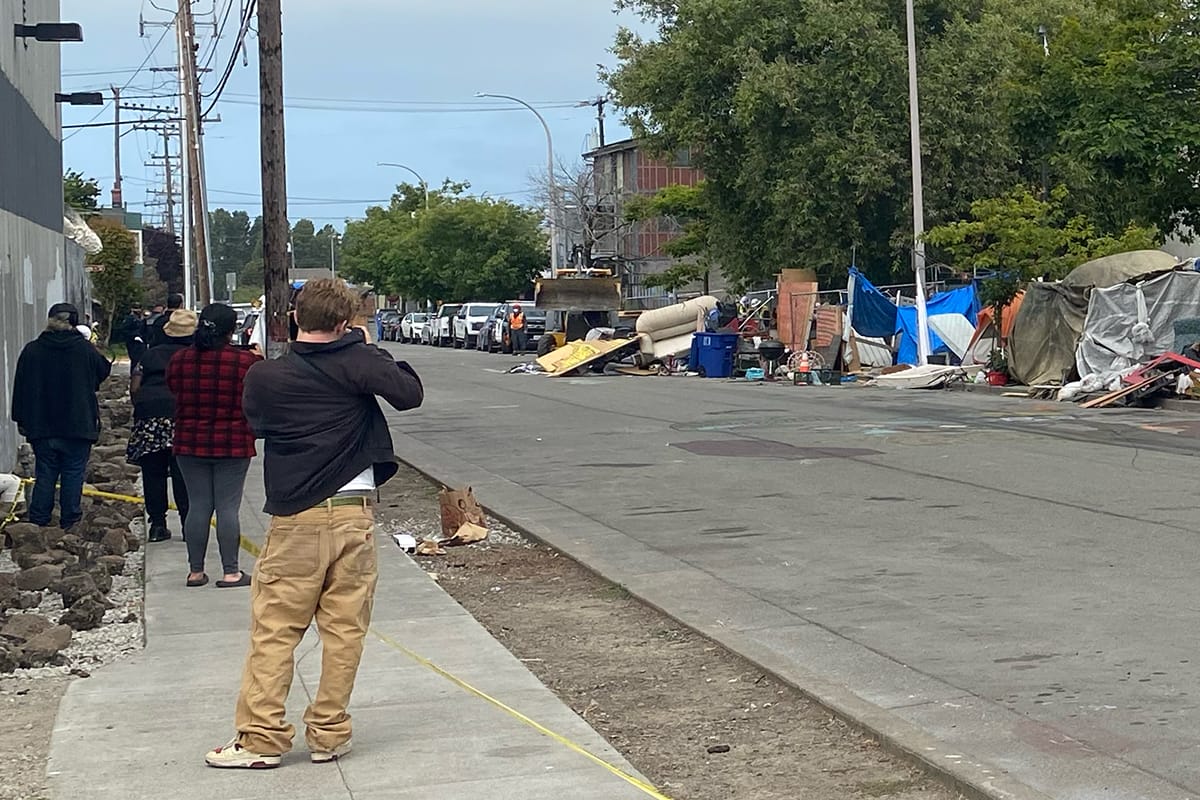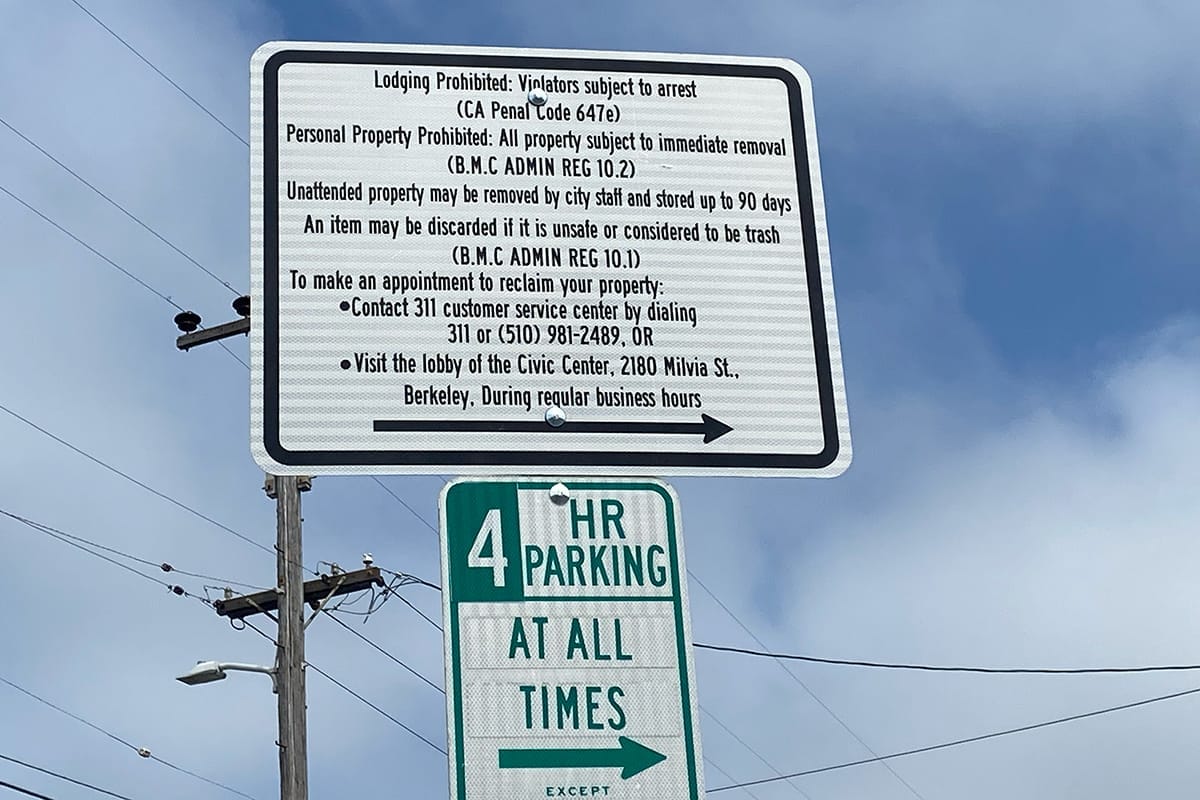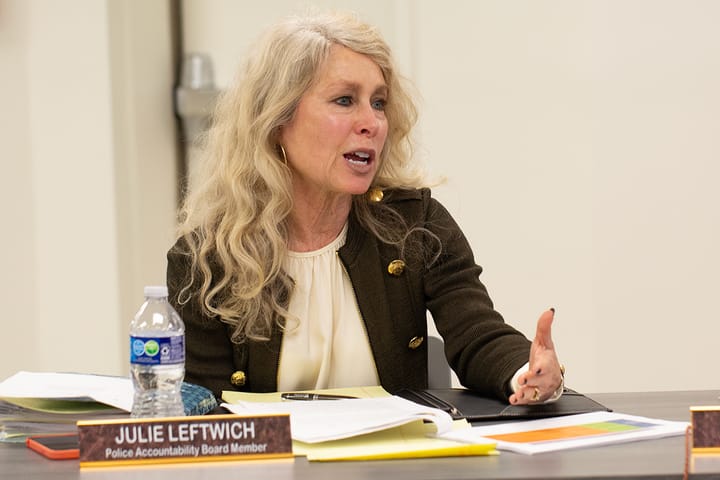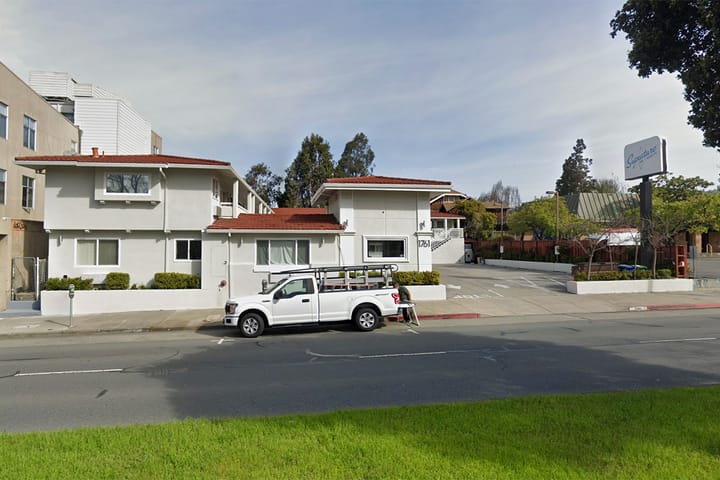Berkeley can't close Harrison homeless camp yet, judge says
The city must give campers "fair warning" of at least a week before taking enforcement action on Harrison Street again, said Judge Edward Chen.
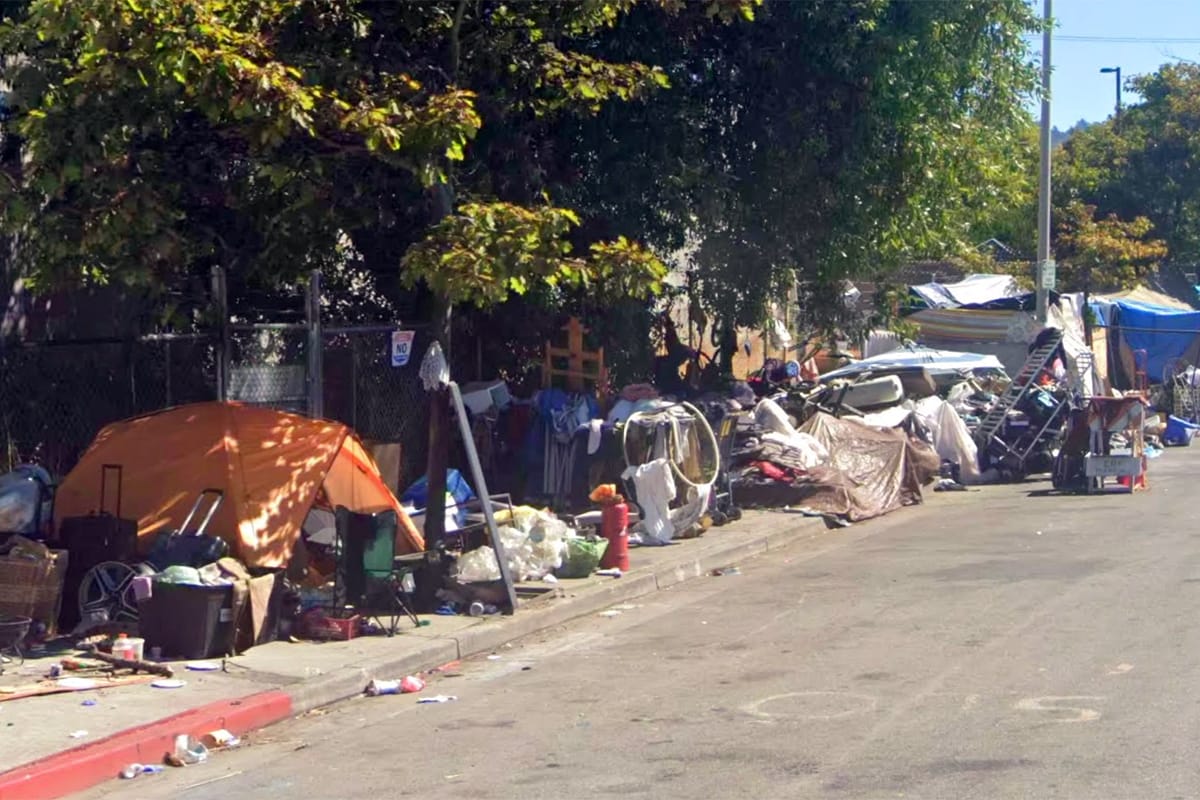
Citing concerns about disabilities, a federal judge has ordered the city of Berkeley to negotiate over the next two months with some residents of the Harrison Street homeless camp before it can clear the area for good.
In his ruling Tuesday, Judge Edward Chen said the city must engage with up to 19 people who filed Americans with Disabilities Act claims seeking accommodations to help them leave the encampment or, potentially, stay indefinitely.
Going forward, Chen said, campers who have not filed ADA claims must be given "fair warning" of at least one week before the city takes enforcement action on Harrison Street again — "given everything that's happened."
The judge said those individuals "would no longer be subject to the protection of this court" and that "the limited injunction that I'm issuing now will not apply to them."
Last week, Chen ordered Berkeley to stop breaking up the Harrison Street camp, saying it had not given encampment residents adequate notice.
How and when the city's abatement work could continue was set to be decided Tuesday morning.
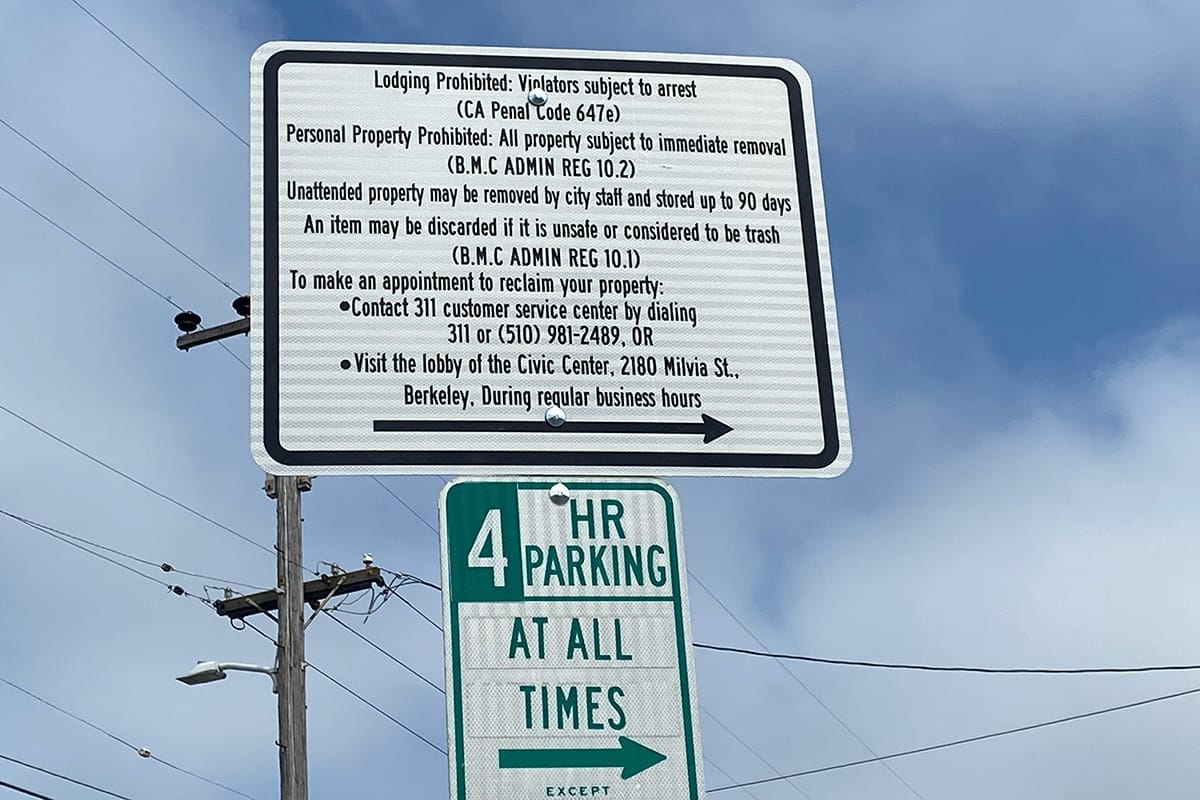
The Berkeley Homeless Union — with support from attorney Anthony Prince of the California Homeless Union — had asked for an injunction to protect the camp going forward.
On Tuesday, the judge said Berkeley had made a "fairly substantial showing" in its filings about the types of problems in the Harrison corridor since the encampment started.
But he said the camp also provides some stability and access to services beyond what its residents might get if they were dispersed.
Tuesday morning, Prince said about a dozen of the 19 or so people at the Harrison Street encampment now had previously filed ADA claims related to physical or psychiatric disabilities.
The law requires the city to offer reasonable accommodations to each of them if their disability makes it harder to leave the camp — but exactly what those accommodations are remains an open question.
Iris Mattes, a deputy city attorney for the city of Berkeley, said her office had been "engaging in ADA accommodation requests for over five months."
Some of the accommodations — such as help with packing or more time to comply with leaving — had been easier to grant than others, including a request for a personal wheelchair, which cities are not required to provide, Mattes said.
Some people had asked to stay indefinitely or be placed in housing — which the city said fell outside the scope of its duties and the law.
(Judge Chen noted that, in his view, those individuals would have " a very difficult claim" to make under the ADA.)
Mattes said staff had responded to each of the ADA requests but that efforts had stalled, in some cases, when campers stopped responding or failed to document their claims.
"We will say no and the same request will be repeated over and over again, or there will be delays of weeks or months," she said. "It feels like it may be sort of never-ending."
"We've always held open the door for any further requests or accommodations because it's interactive and it's iterative," Mattes continued. "It's hard to say that something is finalized because we keep the door open for any last-minute request."
In his ruling, which came after more than an hour of legal arguments, Judge Chen said the individuals with ADA claims are legally entitled to complete the interactive process before the city takes action.
Chen said Berkeley had failed to show that the work had concluded.
The judge ordered the city to report back within 60 days, at which point he would decide whether to lift the injunction on Harrison Street based on whether he felt the process was complete.
Chen said he would look closely at whether the parties had negotiated in good faith, including if they had been willing to bend.
On that point, the judge dinged the city for blocking requests by some individuals who had asked to record their sessions with the city's ADA coordinator, saying he didn't see why Berkeley should refuse.
He said he also expected those making ADA claims to be able to show a reasonable nexus between their disability and the requested accommodation.
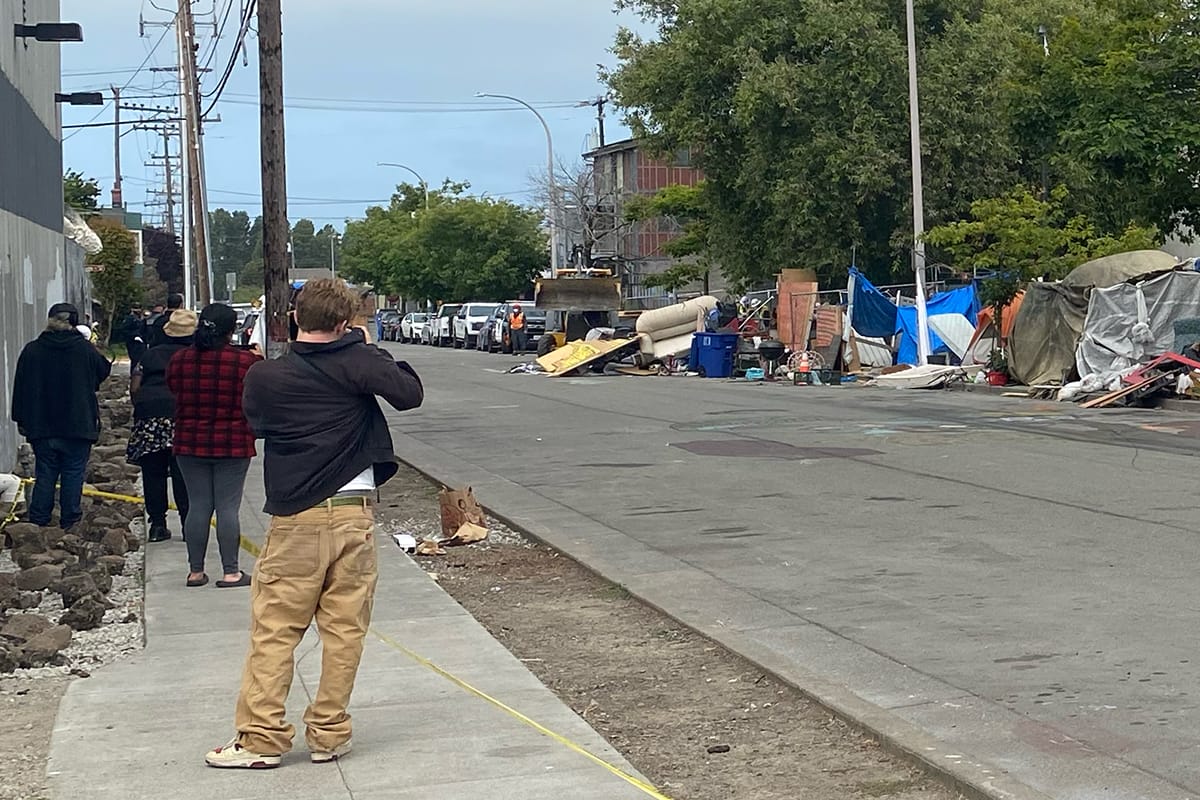
Chen went on to say that his colleague on the bench, Judge Robert Illman, had offered to serve as a mediator if there were individual "disputes over the reasonable accommodation interactive process."
Prince, attorney for the California Homeless Union, noted that Illman had been "instrumental" in helping both sides reach agreement in other encampment cases he'd been on, resulting in "a positive settlement."
Prince asked Judge Chen if he might consider expanding his order to require broader negotiations before Judge Illman between the plaintiff and the city.
" You can't order the parties to settle," Prince said, "but the court does have the authority to order the parties to sit down and see if a settlement could be worked out."
Chen said he would only make that order if both sides were in agreement.
"If the parties want to do that, I certainly welcome that. I would recruit him," Chen said. " But he has already accepted the limited assignment."
Related coverage
